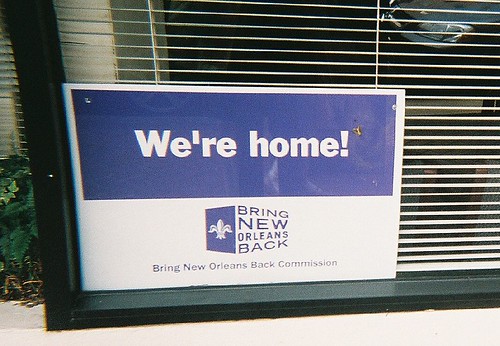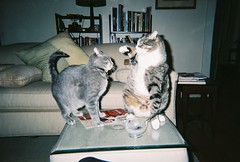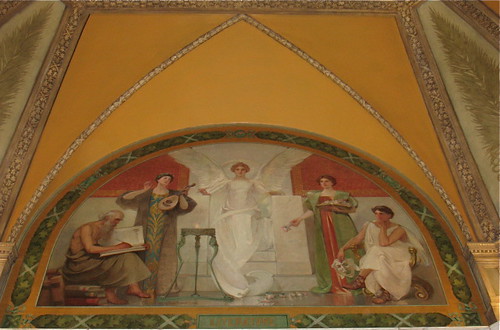I grew up in a household filled with books. The regular trips to the library were a highlight of my childhood, and I well remember the exhilaration when I was no longer confined to the "Children's Section" (never mind that I had been reading so-called "adult" books for quite some time). Our parents never censored our reading. They might suggest that the book we'd pick was trashy, and recommend something else, but I never heard "You aren't allowed to read that" from them.
While I certainly understand why parents might want to monitor their own children's reading (despite the fact that I think it's a really bad idea), it appalls me that anyone would seek to restrict what adults or other people's children read. On a personal level, it is simply none of their business. On a civic level, it's dangerous. It restricts knowledge and learning, it prevents people from learning how to think critically and to form their own opinions. But, of course, that's what the censors want.
Here is a list of the top ten most challenged books of 2008 and the reason they were challenged. Go read one and strike a blow for freedom:
- And Tango Makes Three, by Justin Richardson and Peter Parnell
Reasons: anti-ethnic, anti-family, homosexuality, religious viewpoint, and unsuited to age group - His Dark Materials trilogy, by Philip Pullman
Reasons: political viewpoint, religious viewpoint, and violence - TTYL; TTFN; L8R, G8R (series), by Lauren Myracle
Reasons: offensive language, sexually explicit, and unsuited to age group - Scary Stories (series), by Alvin Schwartz
Reasons: occult/satanism, religious viewpoint, and violence - Bless Me, Ultima, by Rudolfo Anaya
Reasons: occult/satanism, offensive language, religious viewpoint, sexually explicit, and violence - The Perks of Being a Wallflower, by Stephen Chbosky
Reasons: drugs, homosexuality, nudity, offensive language, sexually explicit, suicide, and unsuited to age group - Gossip Girl (series), by Cecily von Ziegesar
Reasons: offensive language, sexually explicit, and unsuited to age group - Uncle Bobby's Wedding, by Sarah S. Brannen
Reasons: homosexuality and unsuited to age group - The Kite Runner, by Khaled Hosseini
Reasons: offensive language, sexually explicit, and unsuited to age group - Flashcards of My Life, by Charise Mericle Harper
Reasons: sexually explicit and unsuited to age group
When the Regime ordered that books with dangerous teachings
Should be publicly burnt and everywhere
Oxen were forced to draw carts full of books
To the funeral pyre, an exiled poet,
One of the best, discovered with fury, when he studied the list
Of the burned, that his books
Had been forgotten. He rushed to his writing table
On wings of anger and wrote a letter to those in power.
Burn me, he wrote with hurrying pen, burn me!
Do not treat me in this fashion. Don't leave me out. Have I not
Always spoken the truth in my books? And now
You treat me like a liar! I order you:
Burn me!



















